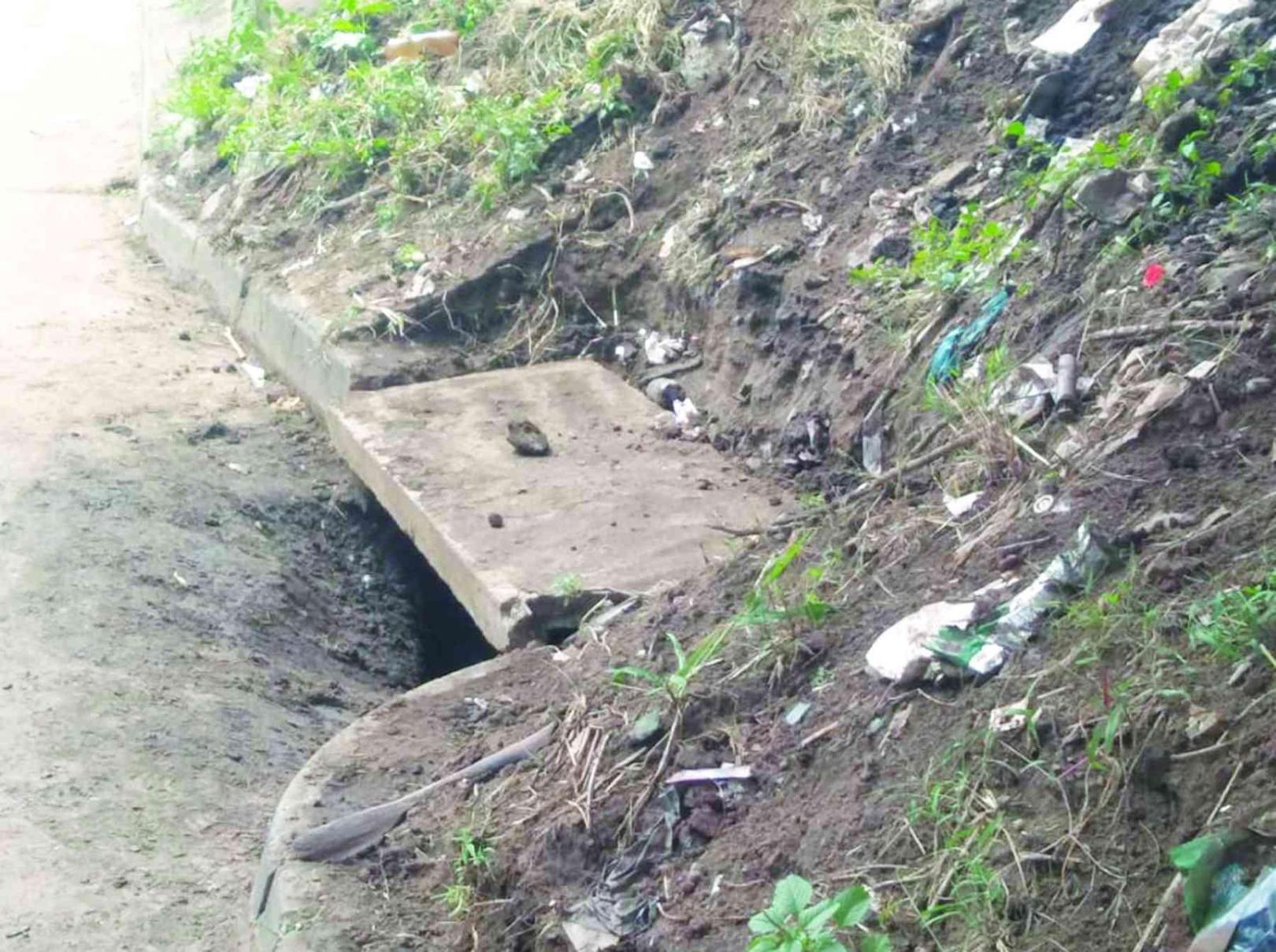Africa-Press – Zimbabwe. LOYCE Nyashita (28), a shop keeper along Julius Nyerere Way in central Harare, is not happy with state of storm drains, particularly during the rainy season.
“The storm drains in Harare’s central business district are a disaster,” she said, her voice filled with frustration.
“Each time it rains, you find that the drains are clogged and failed to drain the water on the streets.
“This is because council workers are not disposing off of swept rubbish properly.”
Nyashita accused Harare City Council workers of dumping debris near the storm drains.
“Instead of removing the excess soil after cleaning, they leave it there and when the rains come, it is a nightmare.”
She said people are at high risk of waterborne diseases due to choked storm drains.
“The water flows everywhere and it’s not just rainwater, it’s mixed with human waste from people using street corners as toilets. It’s a health concern and a total mess,” she said.
Brian Madzikatireva (45), a daily commuter from Chitungwiza, echoed similar sentiments, pointing to the bad state of storm drains near the Mbare flyover in downtown Harare.
“I am particularly concerned about the Mbare flyover. The storm drains around it are always clogged, and when it rains, the water floods that low-lying section of the road, making it impassable. It’s not just an inconvenience, it’s a safety hazard,” he said.
Madzikatireva urged council to prioritise cleaning and maintaining storm drains, particularly certain streets in central Harare.
“The council needs to prioritise maintaining the storm drains, especially around critical areas like the flyover. We can’t keep tolerating this level of negligence.”
Raphael Muendesi (26), from Domboshava who works in the CBD, is also not happy with the way council is investing in infrastructural maintenance.
He urged the city fathers to come up with a long-term solution to deal with flooding in town.
“I think the root of the problem is the council’s lack of planning and resources,” he said.
“They are not investing enough in infrastructure maintenance and it is clear in the state of our storm drains. We need a long-term solution, not just quick fixes.”
Muendesi suggested council should approach stakeholders and come up with a strategy to improve the drainage infrastructure.
“The council should work with stakeholders to develop a comprehensive plan to upgrade our stormwater infrastructure and ensure regular maintenance. We deserve better than the current situation.”
Gift Munemo, a Harare-based town planner, stated that there is need for a proper disposal of solid and waste garbage so that drain clogging can be avoided.
“The local authority should stop disposing solid waste and garbage at undesignated places. Also drain-clearing tasks should be regularly done,” he said.
“For any subdivision layout plan to be properly prepared, a topographical survey should be done. This should be intensively done at two metre contour intervals.
“This is so that it captures and details all ground features and slopes. The town planner should, therefore, prepare the layout in such a way that road and stand blocks do not cut across contours, thereby reducing erosion caused by runoff.”
Added Munemo: “Drain servitude should, therefore, be provided at all road bends and elbows. Roads cutting across contours should have cladding done to reduce the impact of erosion.”
Kelvin Mugondo, an engineer, emphasised the need for innovative solutions, such as smart stormwater management systems and green infrastructure.
“Some innovative technologies or designs that could improve storm drain functionality and reduce clogging include: Smart stormwater management systems: Real-time monitoring and automated cleaning systems. Green infrastructure: Incorporating green roofs, rain gardens, and permeable pavements to reduce stormwater runoff,” he said.
“The clogging of storm drains in Harare’s CBD poses a significant health risk to the public.
“Still water becomes a breeding ground for mosquitoes, increasing the risk of disease transmission.”
Mugondo went on: “Moreover, contaminated water entering waterways can lead to waterborne illnesses. It’s crucial that we address this issue promptly to prevent a potential health crisis and ensure the well-being of our communities.”
He noted that council has acknowledged the issue and is working to address it, but more needs to be done to prevent flooding and ensure public safety.
Council spokesperson Stanley Gama revealed that the local authority is trying to curb the issues of storm drain clogging, but blamed vendors in the CBD for dumping waste in the storm drains.
He said some vendors are using storm drains in the streets as store rooms for their wares, which will also lead to the blockages in the drainage system.
“We have a problem with illegal vendors in town who are contributing to the blockage of storm drains by disposing of plastics and other garbage,” Gama said.
“Some vendors are even using the drains as storage areas, and when it rains, the water sweeps away their wares, further clogging the drains.”
On the issue council of workers who are leaving debris near the storms drains after cleaning, he said he was not aware of that.
“Regarding the issue of soil and plastics being left at storm drains after cleaning, I was not aware of this practice, but I will investigate further with our council workers to ensure that the debris is properly removed.”
For More News And Analysis About Zimbabwe Follow Africa-Press






